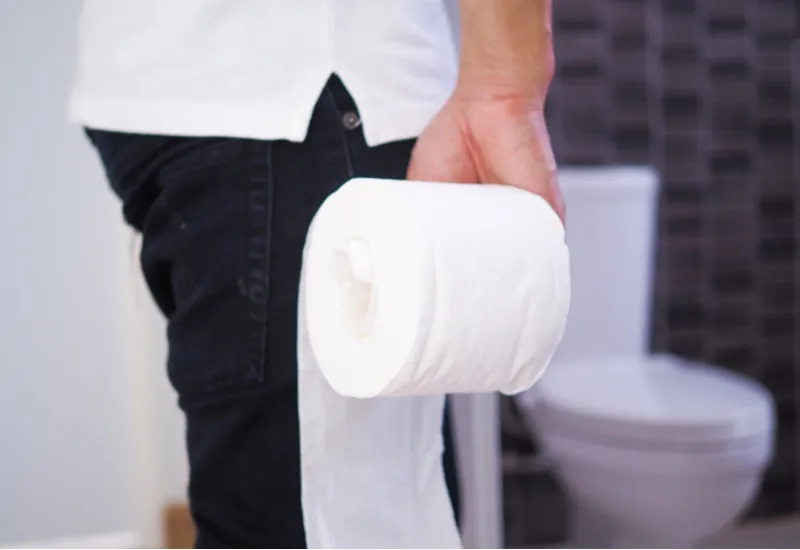Irregular bowel movements can disturb your day-to-day life activities. Inability or difficulty in passing stool can be a very painful condition. Constipation does not only cause difficulty in passing the bowel but can also affect your other systems if it persists for too long. It can also have psychological effects on a person because of discomfort felt during defecation.
You may have suffered from constipation at least once in your life. The risk of constipation increases as you age, although it may occur at any stage of your life. Before looking for remedies to treat constipation, you must understand the underlying reasons causing difficulty in having a regular bowel movement.
What Are The Causes of Constipation?
There are various causes of constipation. Some of the common causes include:
Less fiber in diet: Intake of diet that is less in fiber can cause difficulty in regular bowel movement. This includes junk food, confectionery items, meats, etc.
Dehydration: Lack of the necessary amount of water in your body can also cause hardened stools. This happens because your intestines try to reabsorb as much water as possible to maintain normal fluid levels.
Sedentary lifestyle: Sitting for long hours at your office desk, lying down for a long time due to a disability, or lack of physical activity, in general, can lead to constipation.
Medications: Many medications can cause constipation as a side effect—for example, antidepressants, opioids, antihistamines, diuretics, antacids, antipsychotics, etc.
Anatomical abnormalities: Defects in the gastrointestinal system such as fistulas, intussusception, malrotation, etc., cause difficulty in defecation.
Obstruction: Blockage or constriction of your intestines makes it difficult to pass stool. This may be due to bezoars, stricture, colon or rectal cancer, etc.
Systemic diseases: Secondary diseases like diabetes mellitus, hypothyroidism, hyperthyroidism, celiac disease, chronic kidney disease, etc., can also cause constipation.
Neurological diseases: Patients with conditions like Parkinson’s disease, spinal cord injury, stroke, etc., can develop chronic constipation.
Retention of stool: Some people have the habit of retaining their stool or withholding their bowel movements for several hours. This also leads to hardened stool and difficulty during defecation.
Is It Necessary to See a Doctor?
Suppose you have difficulty passing stool for more than two to three days, pain during defecation, hard and dry feces, abdominal pain or flatulence, and feeling of incomplete defecation. In that case, it is better that you consult a doctor. The early signs and symptoms of constipation are usually ignored in hopes that it will get better by itself. But if you experience persistent symptoms, get an opinion from a medical expert to understand the underlying cause and treatment measures.
Your doctor will require a history of your symptoms, medications, and other systemic conditions. Clinical examination of the anus or rectum is performed in some cases. They may need to perform some diagnostic tests to figure out the cause of constipation. These may include complete blood count (CBC), serum electrolytes level, thyroid function tests (TFTs), etc., to rule out systemic diseases. An abdominal x-ray may be done in case of intestinal obstruction. The x-ray will aid in visualizing the size of stool dislodged in the intestines.
It is beneficial to obtain a specialist’s opinion at an early stage. If constipation is left untreated, it can lead to multiple complications such as anal fissures, hemorrhoids, or fecal impaction.
How to Treat and Prevent Constipation?
Treatment of constipation depends on its underlying cause. Basic treatment starts with improving your diet and fluid intake. Diet with higher fiber content, such as whole wheat, oatmeal, fruits, vegetables, etc., is recommended. Fiber supplements are also available in pharmacies and can be used as prescribed by your doctor. Water intake should be improved to avoid dehydration and facilitate defecation of hardened stool. Exercise or physical activity is also suggested for regular bowel movements.
Medications are prescribed in case of moderate to severe constipation. These may include laxatives such as milk of magnesia or polyethylene glycol that can loosen stool to facilitate its movement. Other medicines may consist of bulk-forming agents such as Citrucel, Metamucil, stimulants such as Correctol, Dulcolax, and stool softeners such as Colace, Docusate, etc. These medicines are only to be taken in dosages as prescribed by your doctor.
Preventive methods should focus on your diet, fluid intake, and physical activity. Avoid sitting or lying down for prolonged periods as much as possible. Older people should also be encouraged to move around or walk every once in a while, especially if they have other systemic illnesses. If a particular medication is causing constipation, ask your doctor for an alternative. Avoid withholding your stool on purpose and defecate whenever you feel the urge to avoid developing constipation.
Visit cua4u to gain more information regarding consultation, diagnostic tests and treatment measures for this condition, and much more. Register yourself and your loved ones today!
Stay informed with CURA4U - Our clinical experts ensure the accuracy of our health and medical content, regularly updated with new information. Medically reviewed by Dr. Saad Zia (Last Updated: March 28, 2023)












